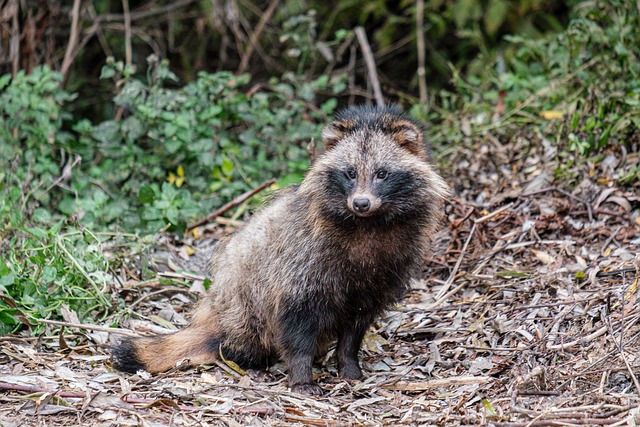The raccoon dog, also known as the mangut or tanuki, is a canid species native to East Asia. Despite its name, it is not closely related to raccoons, but belongs to the canid family, which includes dogs, wolves, and foxes. Scientifically known as Nycterutes procynoides, the raccoon dog has a distinctive appearance with facial markings that resemble those of a raccoon, including a mask-like pattern around its eyes.
Raccoon dogs have a dense fur coat that can change color with the seasons. In winter, their fur becomes thicker and more brown, while in summer it becomes lighter and more reddish. They are omnivorous animals and eat a wide variety of foods including small mammals, birds, amphibians, insects, fruits and berries.
Raccoon dogs have been the subject of folklore and mythology in various cultures, particularly in Japan, where the tanuki holds a special place in folklore and is often depicted as a mischievous and shape-shifting creature. In some areas, raccoon dogs are kept as pets, although in some places, they are considered an invasive species.
It is important to note that raccoon dogs are different from raccoons and are native to a different geographic area.
Here are some interesting facts about raccoon dogs:
- Not Raccoons: Despite the name, raccoon dogs are not related to raccoons. They belong to the canid family, which includes dogs, wolves, and foxes. The name probably comes from their facial markings, which resemble those of raccoons.
- Appearance: Raccoon dogs have a distinctive appearance and have a mask-like pattern around their eyes, reminiscent of a raccoon. They have a dense fur coat that can change color with the seasons.
- Habitat: Raccoon dogs are native to East Asia, including Japan, China, Korea, and parts of Russia. They prefer wooded areas and are often found near water.
- Omnivores: These animals are omnivores, which means they eat a wide variety of foods. Their diet includes small mammals, birds, amphibians, insects, fruits and berries.
- Nocturnal: Raccoon dogs are primarily nocturnal, meaning they are most active during the night. They are considered good climbers and swimmers.
- Social Behavior: Raccoon dogs are generally solitary animals, but they can form small groups, especially during mating season. They communicate using different vocalizations.
- Burrow dwellers: They are skilled diggers and often build burrows for shelter. These burrows may be used to raise children, rest, or shelter from extreme weather.
- Seasonal Fur Changes: Raccoon dogs exhibit seasonal changes in their fur color. In winter, their fur becomes thicker and more brown, while in summer it becomes lighter and more reddish.
- Invasive Species: In some areas outside their native range, raccoon dogs have been introduced and are considered an invasive species. These can have negative impacts on the local ecosystem.
- Folklore and mythology: Raccoon dogs hold cultural significance in some areas, particularly Japan. In Japanese folklore, tanuki (as raccoon dogs are called) are often depicted as shape-shifting and mischievous creatures.


Comments
Post a Comment